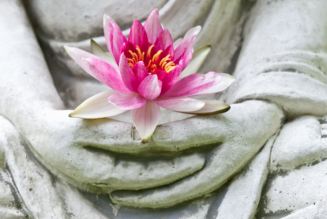Ayurveda Daily Rhythms
According to Ayurveda, a person is a miniature reflection of nature and the rhythm of life is governed by cycles. In order to maintain health and balance we need to learn how to live in accordance to nature’s daily cycle. Ayurveda speaks about biological time as a function of three doshas [vata–pitta–kapha] in relation to chronological time with each dosha being more active at a particular time of day and night.
“Early to bed and early to rise
makes a man healthy, wealthy, and wise.”
– Benjamin Franklin
Daily Rhythms:
Early Morning [2 am – 6 am] – Vata Time
Morning [6 am – 10 am] – Kapha Time
Mid-day [10 am – 2 pm] – Pitta Time
Afternoon [2 pm – 6 pm] – Vata Time
Evening [6 pm -10 pm] – Kapha Time
Mid-night [10 pm – 2 am] – Pitta Time
Early Morning [2am – 6am]
Early morning before sunrise is the time of vata. The qualities of vata are expressed with brisk coolness in the air and the beginning of increased activity of nature as birds begin to sing and people begin a new day. Similarly, the urge to eliminate governed by vata increases as the body naturally wants to excrete upon waking hours. This is an important time to ensure a bowel movement, wash, and cleansing of the body while considering certain morning kriyas [cleansing techniques].
“Brahmamuhurtha – “Time Of Brahma”
Brahmamuhurtha is considered 1 hr 36 minutes before sunrise and thought to be an auspicious time for meditation. This period of time is a junction point between night and early morning and is considered a time of heightened awareness. Therefore, Brahmamuhurtha is considered an auspicious time of day best suited for praying, meditating, and contemplation.
Great Video – Discussing The Importance Of Brahmamuhurtha
Morning [6 am – 10 am]
Rise & Shine
The early morning hours from 6 – 10 am is when kapha is predominant. Kapha is made primarily of water and earth and therefore brings about the heavy, cool, and moist qualities of the early day. One of the main reasons why it’s recommended to wake up early [i.e. before 6 am] is because the heavy qualities of kapha makes it more challenging to wake up without feelings of sluggishness and laziness.
Study & Meditation
Kapha provides for a stable and steady mind. This steadiness of kapha makes the morning hours a great time for study as there is an enhanced ability to retain information. Similarly, during these early hours of serene qualities of the mind provides an ideal time for meditation and contemplation.
Breakfast
When kapha is high, digestion is often slow or diminished. Therefore, it is wise to avoid heavy meals first thing in the morning. Instead, we should consider light and warm meals which can be more easily digested.
Click Here – Dinacharya: Daily Routine To Perfect Health
Mid-day [10 am – 2 pm]
Lunch
During mid-day, kapha decreases while pitta increases. As pitta continues to increase you will notice an increase in appetite reflecting when the power of digestion is at its peak. Generally, the largest meal of the day should be eaten at this time when the metabolic digestive fire [“agni”] digests and assimilates food optimally.
Activity
Mid-day is when the day heats up as the sun becomes stronger and reaches its peak. It’s the fire element of the sun which brings about light, warmth, and dryness to the day. It’s during this period when the internal and external heat is at its height and therefore is not the most ideal time to exercise or become overly active. Pitta types who predominantly have a fiery element should especially make sure not to overly exert themselves at this time.
Late Afternoon [2 pm – 6 pm]
During this time of day the air element of vata increases as we notice the day soon becomes cooler and more windy. Vata energy brings about lightness to the mind which makes it more challenging to focus. Instead of refilling on coffee it may be more worthwhile to meditate in order to regain focus during this vata time.
Evening [6 pm -10 pm]
Time For Reflection
Sunset is a junction of day into night and is when the daily cycle repeats itself for the latter half of the day – meaning from 6 pm -10 pm kapha predominates as it did during the morning hours of 6 am- 10 am. Just as the early morning kapha times was a time of meditation, so true – kapha time during the evening is an ideal time for reflection. According to vedic philosophy, spiritual activities are amplified when performed at junction points. Therefore, this is a opportune time to meditate, chant, or do a calming yoga practice. Finally, as the suns energy begins to fade, and the cold and heavy energy of kapha dominates we soon begin to feel tired after a long and lengthy day. Relaxation is essential before bed – but first, dinner.
Dinner
Generally, dinner should be eaten early [between 6-7pm]. Eating too late in the evening may lead to undigested food remaining in the digestive tract and thus resulting in the accumulation of undigested food material – toxins [“ama”] in the colon. Similarly, a heavy meal during kapha time of the night can result in excess kapha qualities of heaviness and therefore result in weight gain and/or other kapha-related conditions. That said, pitta types may be able to eat slightly later due to their stronger digestive ability.
Sleep
In order to ensure restful sleep, relaxation is essential before bed. The aim is to be asleep before 10pm. Normally, the qualities of kapha accumulate throughout the evening and the body will naturally be tired. If we are in tune with these natural rhythms of life the body will naturally seek to experience deep and restorative sleep by this time.
Mid-night [10pm – 2am]
There is often great emphasis regarding falling asleep by 10pm because if one stays awake after 10 pm the active nature of pitta can prevent sleep. Pitta continues to increase during these late hours and its primary function is for repair and transformation of bodily tissue. However, if one remains awake during these late hours you will notice an increase in appetite i.e. “mid-night cravings” due to the fiery nature of pitta. Eating during these late hours is not conducive to health because pitta at night is not intended for digestion but rather repair and transformation of bodily tissue. Lastly, sleeping on a full stomach can result in the buildup of partially digested food [toxins] in the gastrointestinal tract and also thought to cause disturbing dreams; preventing restful sleep.
Individual – Unique Needs
The above mentioned influences of vata-pitta-kapha are basic guidelines to help align the individual with the natural rhythms of life. Depending on geographical and individual variations there will naturally be differences throughout the year in regards to dosha influences, the time of sunrise and sunset and seasonal-related influences. Therefore, as we become more in-tune with these rhythms of life we will also be able to develop a knowing on how to adjust our daily life accordingly.



![Female Health: Amenorrhea [cessation of menses] – An Ayurvedic Perspective](https://healthyayurveda.com/wp-content/uploads/2015/07/1.-Amenorhea--327x219.png)




